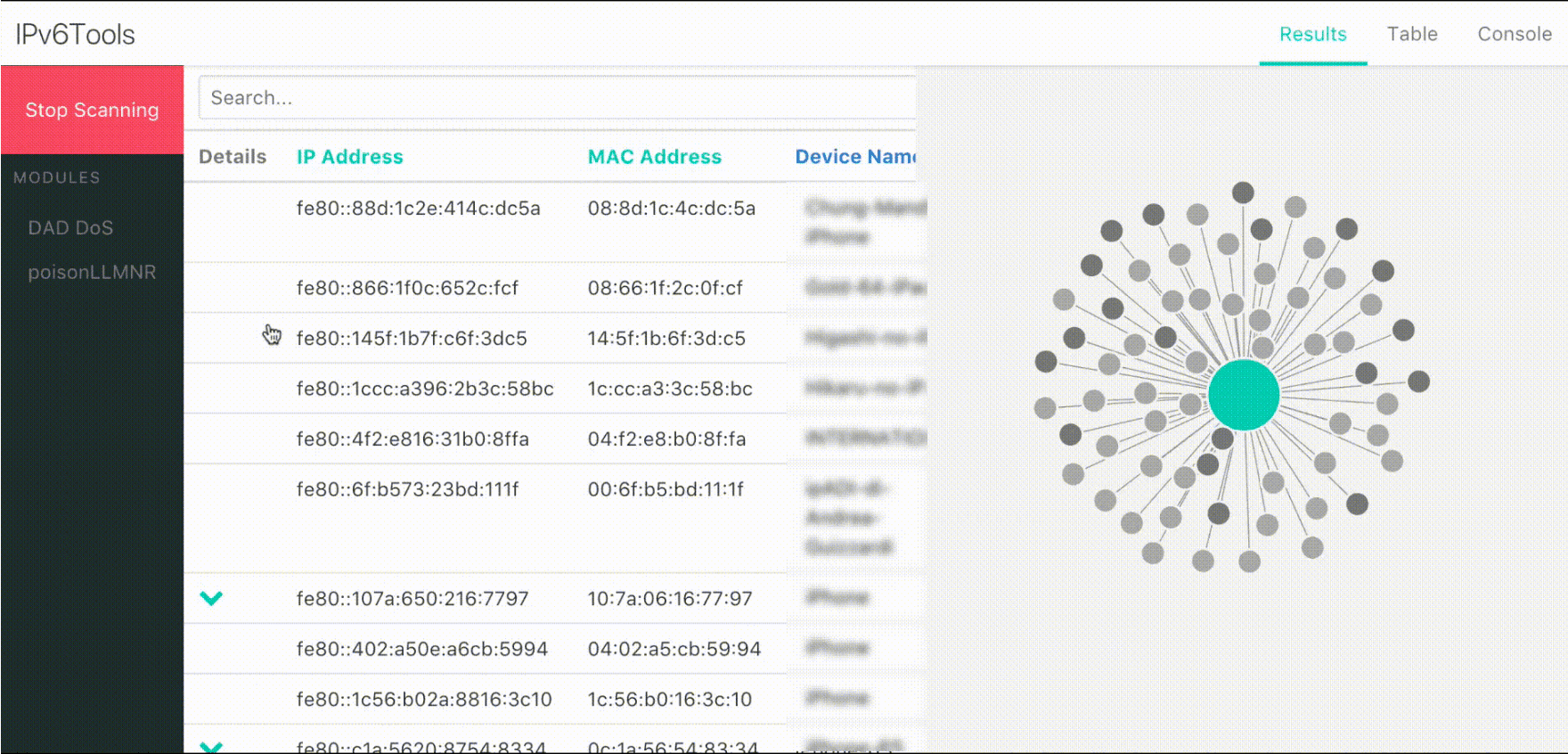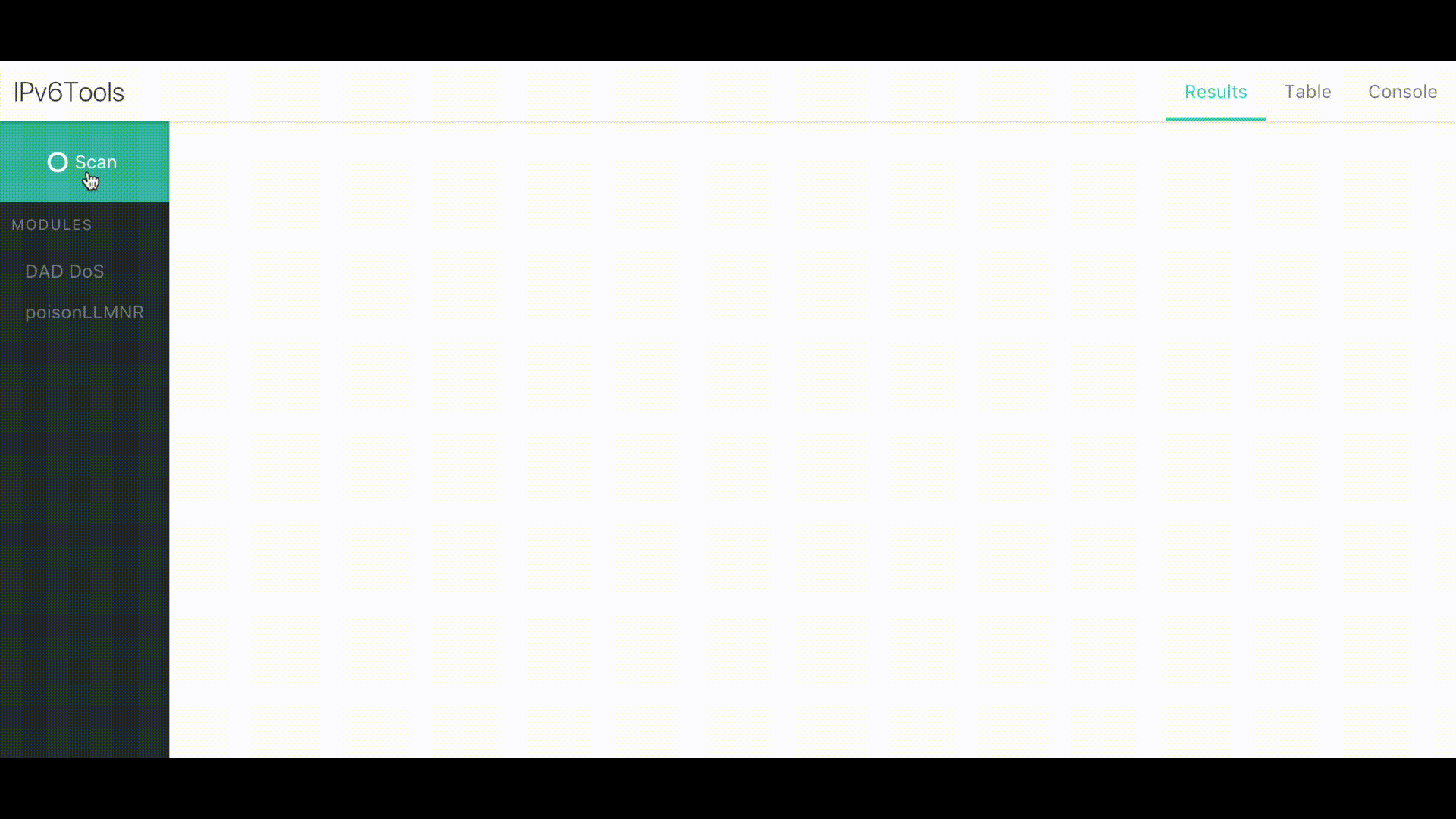ipv6tools: visually audit an IPv6 enabled network

IPv6Tools
The IPv6Tools framework is a robust set of modules and plugins that allow a user to audit an IPv6 enabled network. The built-in modules support enumeration of IPv6 features such as ICMPv6 and Multicast Listener Discovery (MLD). In addition, the framework also supports enumeration of Upper Layer Protocols (ULP) such as multicast DNS (mDNS) and Link-Local Multicast Name Resolution (LLMNR). Users can easily expand the capability of the framework by creating plugins and modules in the Python language.
Modules
Modules are classes that allow interaction with individual nodes or all nodes. These show up as a right-click option on each node, or as a button below the graph.
Included Modules
Included in the project are a couple of modules to help validate your network, as well as use as examples for your own modules.
- poisonLLMNR – Link-Local Multicast Name Resolution is the successor of NBT-NS, which allows local nodes to resolve names and IP addresses. Enabling this module poisons LLMNR queries to all nodes on the local link.
- CVE-2016-1879 – The following CVE is a vulnerability in SCTP that affects FreeBSD 9.3, 10.1 and 10.2. Enabling this module will launch a crafted ICMPv6 packet and potentially cause a DoS (assertion failure or NULL pointer dereference and kernel panic) to a single node.
Custom Modules
All modules are located in /modules and are automatically loaded when starting the server. Included in /modules is a file called template.py. This file contains the class that all modules must extend in order to display correctly and communicate with the webpage.
Use this template to build a custom module
Installation
Standard
[Optional] Use a virtualenv for installation: virtualenv venv && source venv/bin/activate
- git clone http://github.com/apg-intel/ipv6tools.git
- sudo pip install -r requirements.txt
Development
- git clone http://github.com/apg-intel/ipv6tools.git
- git checkout dev
- npm run setup
Usage
Standard
- sudo python app.py
- Navigate to http://localhost:8080 in a web browser
Development
- Run $ npm run serve
- In a separate terminal, run npm run dev
- Navigate to http://localhost:8081 in a web browser
Copyright (C) 2017
Source: https://github.com/apg-intel/






